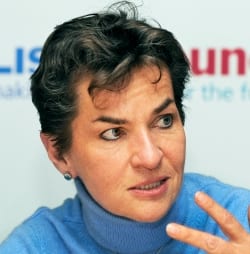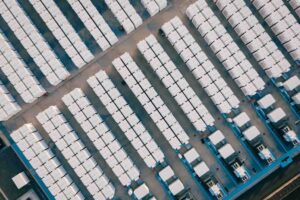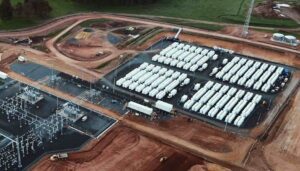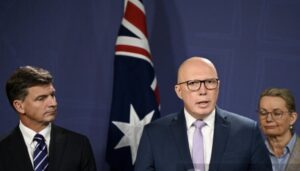The head of the United Nation’s body charged with forging a global agreement on addressing climate change has urged Australia to show leadership, and said even Saudi Arabia had recognised it needed to diversify from fossil fuels.
In a speech in Melbourne, Christiana Figueres – the executive secretary of the UNFCCC (Framework Convention on Climate Change) said there would be an agreement on limiting warming to 2°C in Paris this year, and Australia’s contribution to post-2020 would come under intense scrutiny.
“Australia is country that prides itself on leadership, not just in cricket, in many different fields. This cannot be an exception,” Figueres said.
And, in an obvious reference to Australia’s dependence on fossil fuels, both for domestic energy supply and for export, Figueres pointed to Saudi Arabia, another country that has been accused of stone-walling on climate talks, and its ability to evolve.
She noted Saudi Arabia was investing heavily in clean energy, knowing that it could no longer continue to consume expensive and polluting oil. “If the Saudis can do that, everyone else can,” she said.
A Saudi company, ACWA Power, earlier this year won a bid to build a 200MW solar plant at an unsubsidised price of under 6c/kWh, the cheapest so far in the world, and predicts that more than half of new energy requirements in Africa and the Middle east will be met by solar. 
Figueres’ past experiences with the current Australian government include being accused by the then newly elected Prime Minister Tony Abbott of “talking out of her hat”, when she said the NSW bush fires in 2013 were a sign that Australia was already paying the price of carbon. A month later, Australia sent no ministerial representative to the annual climate talks in Poland.
Her speech this week was highly nuanced, particularly in reference to Australia’s chosen policy path of Direct Action and the Emissions Reduction Fund.

It was the targets, rather than the method, that counted, Figueres said, although she also underlined the point that mechanisms that can be linked (read carbon markets) would make the task easier.
The level of Australia’s post 2020 targets is the biggest question hanging over the Coalition’s climate policy. The Climate Change Authority urges a target of 19 per cent reductions by 2020, 30 per cent by 2025 and a trajectory of between 40 and 60 per cent cuts by 2030. A global “carbon budget”, which would require more than two thirds of fossil fuel reserves to remain in the ground, with consequences for Australia, is also freely discussed in international politics and finance.
The level of scrutiny cited by Figueres has already been highlighted by the range of questions posed by US, China, the EU and others, basically seeking to understand Australia’s current policy of Direct Action, and how that could be scaled up to meet post 2020 targets.
Environment Minister Greg Hunt, speaking after Figueres, insisted that Australia supported the 2°C target, despite the failure of the recent energy white paper and the discussion paper on future targets to mention this target.
Instead, the two papers only cited the IEA’s 4°C scenario. Hunt brushed aside questions about this, describing them only as “scenario planning”.
Figueres said it was essential to provide policy consistency to provide signals for industry. Hunt said that consistency would be delivered: He intended Direct Action to be the core policy for the next 50 years.
The problem is, few others believe him. While such funds are used in some other countries, in no other do they form the central part of policy. Any raised targets would be a massive drain on budgets.
Reputex said on Wednesday that the $2.55 billion allocated for the ERF could be exhausted within a year, particularly as industry presents its projects, something Hunt said he was confident of seeing in the next auction.
The ERF is not designed to meet the 5 per cent target by 2020 – and probably couldn’t because of the cost of carbon abatement – but Hunt insists Australia will still meet its target, thanks to changes elsewhere in the economy.
But analysts say that using the ERF as a centrepiece for more ambitious targets post 2020 will cost $20 billion, or more. There is also concern over the so-called safeguards mechanism, which nominally puts a cap on emissions to stop emissions growing at one end of the economy while reductions are paid for at the other end.
The safeguards mechanism has been criticised for being so lax it will allow emitters to increase emissions. An assessment from Environment Victoria released on Tuesday said that black coal generators could lift emissions by 30-40 million tonnes.











